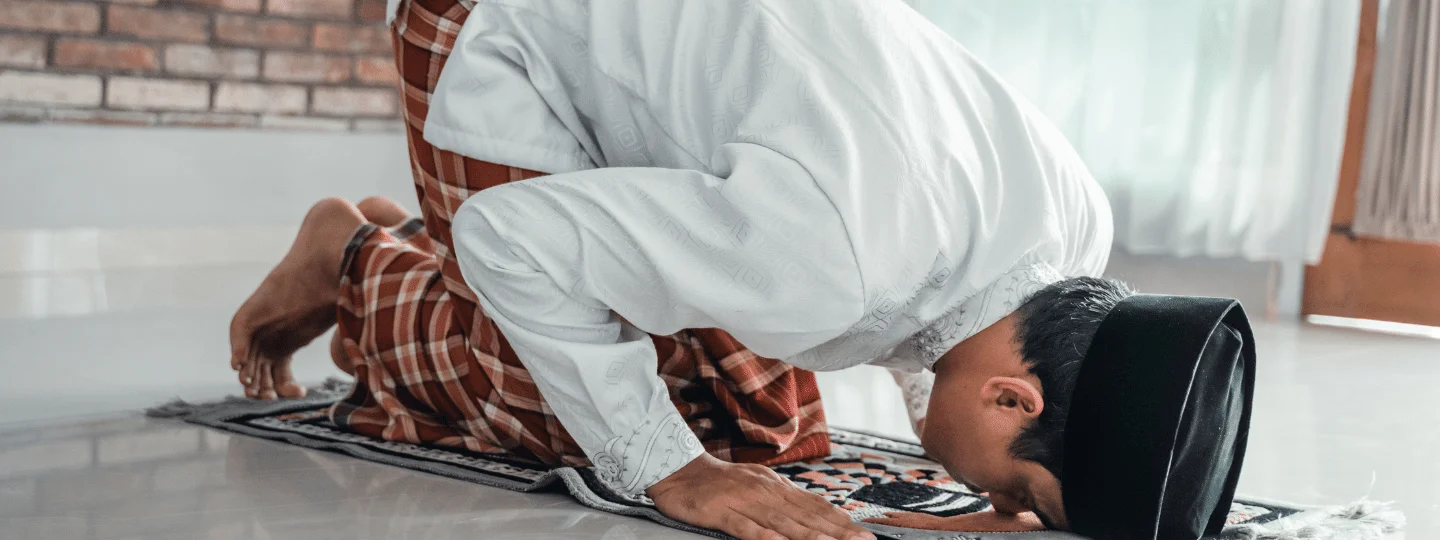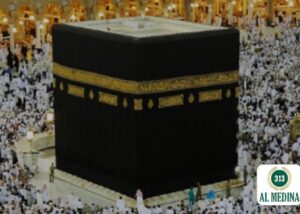Quran
Hadith
Islamic Text
بِسْمِ اللَّهِ الرَّحْمَنِ الرَّحِيمِ
In the Name of Allah Most Merciful Most Kind
Short answer
Yes, if Eid is on Friday, you do still have to pray Jummah (Friday prayer). Furthermore, the Hadith narrations that suggest otherwise are understood to refer to people who are not resident of the city. Rather, these people were village dwellers. Additionally, in Shariah Jummah (Friday prayer) is not obligatory (Fard) upon people who live in small villages.
Evidence
قَالَ أَبُو عُبَيْدٍ: ثُمَّ شَهِدْتُ العِيدَ مَعَ عُثْمَانَ بْنِ عَفَّانَ، فَكَانَ ذَلِكَ يَوْمَ الجُمُعَةِ، فَصَلَّى قَبْلَ الخُطْبَةِ، ثُمَّ خَطَبَ فَقَالَ: يَا أَيُّهَا النَّاسُ، إِنَّ هَذَا يَوْمٌ قَدِ اجْتَمَعَ لَكُمْ فِيهِ عِيدَانِ، فَمَنْ أَحَبَّ أَنْ يَنْتَظِرَ الجُمُعَةَ مِنْ أَهْلِ العَوَالِي فَلْيَنْتَظِرْ، وَمَنْ أَحَبَّ أَنْ يَرْجِعَ فَقَدْ أَذِنْتُ لَهُ
Abu Ubaid said, “I prayed Eid with (Sayidina) Uthman bin Affaan (May Allah Most High be pleased with him) on a Friday. He led the prayer and before the Khutbah (sermon). Then he delivered the Khutbah (sermon). So He said, ‘O people, on this day two Eids have been combined for you. So, whosoever from the people of al-Awaali wants to wait for Jummah (Friday prayer) then let him wait. And whosoever wants to return (home), then I have permitted him (to return).'” (Sahih al-Bukhari, 3600).
The narration above was also narrated by Imam Ibn Hibban (3600) and Imam Malik in his Muwatta. In the narration of Imam Ibn Hibban, al-Aaliyah is mentioned instead of al-Awaali. However, both narrations are referring to the same thing. Imam Ibn Hibban narrated it in the singular and Imam al-Bukhari narrated it in the plural. The hadith refers to small villages outside of Madinah Sharif.
Classical Scholars
العالية: ما كان من جهة نجد من قرى المدينة. (شرحُ مُسْنَد الشَّافِعيِّ)
Al-Aliyah refers to villages near Madinah (Sharif) in the direction of Najd. (Imam al-Qazwini, Sharh Musnad al-Shafi).
Based on the evidence mentioned above, the Hanafi scholars asserted that the Jummah (Friday) prayer is obligatory even in situations where Eid is on Friday too.
مُحَمَّد عَن يَعْقُوب عَن أبي حنيفَة (رَضِي الله عَنْهُم) عيدَان اجْتمعَا فِي يَوْم وَاحِد فَالْأول سنة وَالْآخر فَرِيضَة وَلَا يتْرك وَاحِد مِنْهُمَا. (الجامع الصغير)
(Imam) Muhammad narrated from (Imam) Yaqoob from (Imam) Abu Hanifah (May Allah Most High be pleased with them): If two Eids occur on the same day, the first being Sunnah (recommended) and the second being Fard (obligatory) then he cannot neglect either of them. (Imam Muhammad al-Shaybani, al-Jami al-Sagheer).
Although the above Nass (text) mentions that Eid is Sunnah, the position of the Hanafi Madhab is that it is Wajib (necessary) to pray Eid. The above Nass was explained by Imam al-Mowsili in al-Ikhtiyaar:
مَعْنَاهُ وَجَبَ بِالسُّنَّةِ؛ لِأَنَّ قَوْلَهُ وَلَا يَتْرُكُ وَاحِدٌ مِنْهُمَا دَلِيلَ الْوُجُوبِ.( الاختيار لتعليل المختار)
It means that it is Wajib (necessary) by the Sunnah (meaning proven by the Sunnah). Since his saying, ‘He cannot neglect either of them’ is a proof of obligation (not recommendation). (Imam Abu al-Fadl al-Mowsili, al-Ikhtiyaar).
أَمَّا مَذْهَبُنَا فَلُزُومُ كُلٍّ مِنْهُمَا. (رد المحتار)
As for our Madhab (school of jurisprudence), it necessitates both (Eid and Jummah). (Imam Ibn Abideen, Radd al-Muhtaar).
Conclusion
In conclusion, the strongest opinion in the Hanafi Madhab considers the Eid prayer to be Wajib. Additionally, the ruling related to Eid prayer does not change if Eid happens to fall on a Friday. If any of the Madhaahib of Ahl al-Sunnah hold a different opinion then that should be respected too. Furthermore, one should recognise that rulings found in the authentic Madhabs of Ahl al-Sunnah always have supporting evidence.
And Allah Most High Knows Best.
–Answered by Shaykh Noorud-deen Rashid (19.04.23)






